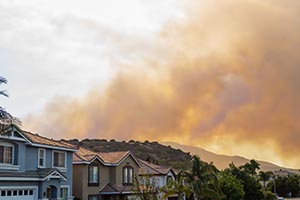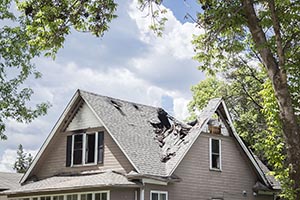
Checklist: financial recovery after a natural disaster


FDIC-Insured - Backed by the full faith and credit of the U.S. Government
Natural disasters like hurricanes, floods, tornadoes, earthquakes, wildfires, and tsunamis can strike unexpectedly, leaving all kinds of chaos behind. But by planning ahead, you can help protect your family, home, and belongings and improve your chances of getting back on your feet faster if a natural disaster does occur.
Here are some essential tips to help you prepare for a natural disaster:
Many cities and towns have systems in place that can alert you to impending natural disasters, using technology to send timely text messages, phone calls, or emails. Signing up for these alerts can help you stay informed and take necessary action quickly.
Keep a list of emergency phone numbers, including local emergency services, your family doctor, and insurance agents. You may also want to have the phone numbers of family and friends who live outside of your immediate area.
A disaster kit could include essential items like non-perishable food, water, first aid supplies, flashlights, batteries, a radio, and a whistle. Store your kit in a safe and accessible place in your home and keep a second, smaller version in your car.
Plan ahead for how you and your family would evacuate your home if an emergency were to occur. Identify safe evacuation routes and meeting places. Discuss what to do if you were to be separated and practice your plan together.
Pets are family too, so make sure your pets are included in your evacuation plan. Keep a disaster kit for them as well, including basics like food, water, medication, and a leash. Keep your vet’s contact info on hand and make sure your pets are up-to-date on vaccinations.
Keep digital copies of important documents, such as insurance policies, identification documents, and medical records, in a secure, password-protected location.
Having the right insurance can help protect you financially in the event of a natural disaster. Review your policies annually to make sure you have adequate coverage and understand your deductibles and any limitations.
Make an inventory of your belongings – especially the more expensive items – including serial numbers, photos, and receipts. Keep this information in a secure location, such as a safe deposit box or in a secured place digitally.
Set aside some money in an emergency fund that you can access in case of a natural disaster. This can help cover unexpected expenses such as temporary lodging, food, and supplies. Consider keeping your emergency savings in an account at a bank that has both physical locations near you as well as strong online and mobile capabilities, to make sure you’re able to access your account in a variety of different scenarios.
Preparing for a natural disaster can be a lifesaving step for you and your family. By taking these essential tips into consideration, you can be better prepared to face whatever curveballs Mother Nature sends your way.
Looking for more ways to stay ahead of natural disasters? Prepare yourself by proactively reviewing this checklist for recovering your finances in the aftermath of a natural disaster.
Related content

